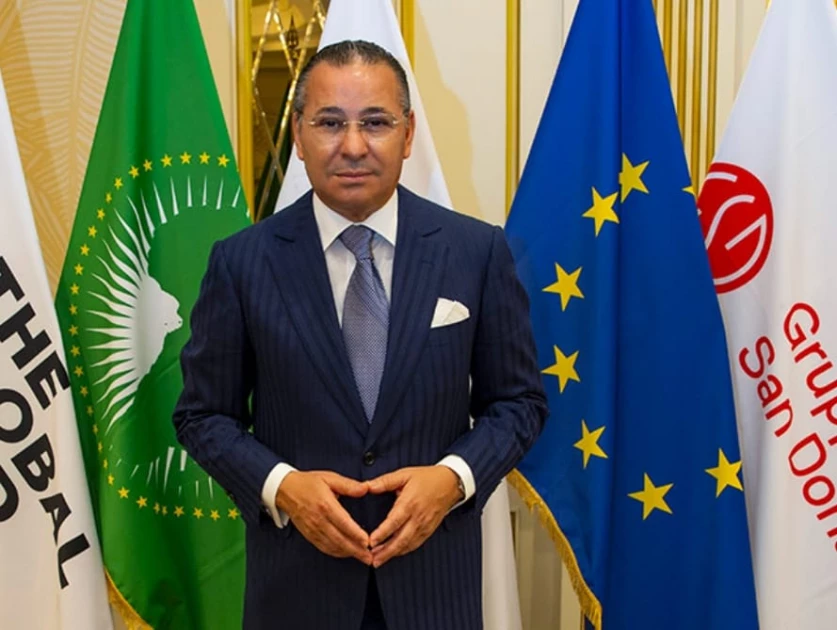ECAM Council pushes Africa to the forefront of global cooperation

ECAM president Kamel Ghribi. Photo/ Courtesy

Audio By Vocalize
Against the backdrop of the United Nations General Assembly, the seventh edition of the European Corporate Council on Africa and the Middle East (ECAM Council) convened in New York on September 22, drawing leaders and ministers from more than 20 countries across four continents.
The gathering, aimed at strengthening ties
between Africa, Europe and Italy, projected a clear message: Africa’s role in
shaping the present is no longer up for debate.
“Africa is no longer the continent of
tomorrow; it is the continent of today,” declared ECAM President Kamel Ghribi,
setting the tone for a summit that sought to redefine relationships once
dominated by aid and dependency.
Ghribi praised Italy’s increased engagement through its Mattei Plan, a framework designed to channel investment into energy, infrastructure and agriculture. “I am deeply honoured to have participated in discussions on Africa’s most pressing development challenges and the remarkable opportunities for collaboration with Europe and Italy,” he said.
“A heartfelt thank you goes to Deputy Prime Minister and Minister of
Foreign Affairs and International Cooperation, Antonio Tajani, for his presence
and the insights he shared in his address.”
Italy has cast the Mattei Plan as a
strategic response to migration, climate and economic pressures that bind the
two continents. For Rome, Africa’s promise is both practical and geopolitical.
“Africa could provide everything we need,”
said Edmondo Cirielli, Italy’s Deputy Foreign Minister, in remarks earlier this
year, stressing that the continent’s resources and talent pool must be
recognized as central to Europe’s future.
Angola’s representatives voiced optimism,
describing the plan as “a concrete opportunity to speed up our social and
economic development under a mutual partnership.” The Angolan delegate noted
that diversifying away from oil dependency and creating youth employment would
be among the clearest gains.
Officials from Congo highlighted similar
hopes for food security and transport links, but cautioned that “massive
investments” would be required to achieve the ambitions outlined.
Yet the enthusiasm was tempered by
concerns. Policy analysts argue that the plan risks falling into familiar
patterns if questions of governance and accountability go unanswered. A report
by the Istituto Affari Internazionali warned that “good intentions need good
governance,” underscoring that the Mattei Plan remains vague on financial flows
and oversight.
Environmental groups, meanwhile, worry that an emphasis on energy could mean new fossil fuel projects rather than a decisive pivot toward renewables. And civil society voices across Africa have warned against external designs that fail to put African agency at the center. As one commentary from Nairobi argued, Africa must reject approaches that resemble “charity in disguise” and instead insist on justice, ownership and mutual respect.
For Ghribi, who has long positioned ECAM as
a platform for “economic diplomacy,” the Council represents a chance to move
beyond conflict and suspicion toward shared prosperity. “As private actors, we
are committed to contributing, with determination and purpose, to even the
grandest goals — peace among them,” he said.
But analysts note that turning declarations
into durable partnerships will hinge on transparency and inclusion. “There is
interest and expectation of results from the continent’s actors,” said Jakkie
Cilliers, a South African political analyst, “but the real test will be whether
Africa’s Agenda 2063 priorities are genuinely integrated.”
As the ECAM Council closed, the mood
oscillated between possibility and caution. The idea that Africa has moved from
the margins to the center of global strategy is gaining ground, but whether
initiatives like the Mattei Plan can deliver concrete progress remains
uncertain.
For many African leaders and business
voices present in New York, the summit reinforced a conviction: Africa’s future
is not just ahead — it is unfolding now.



Leave a Comment